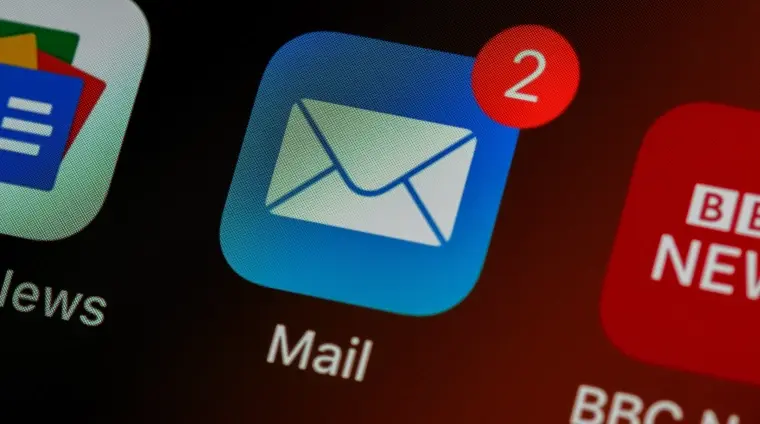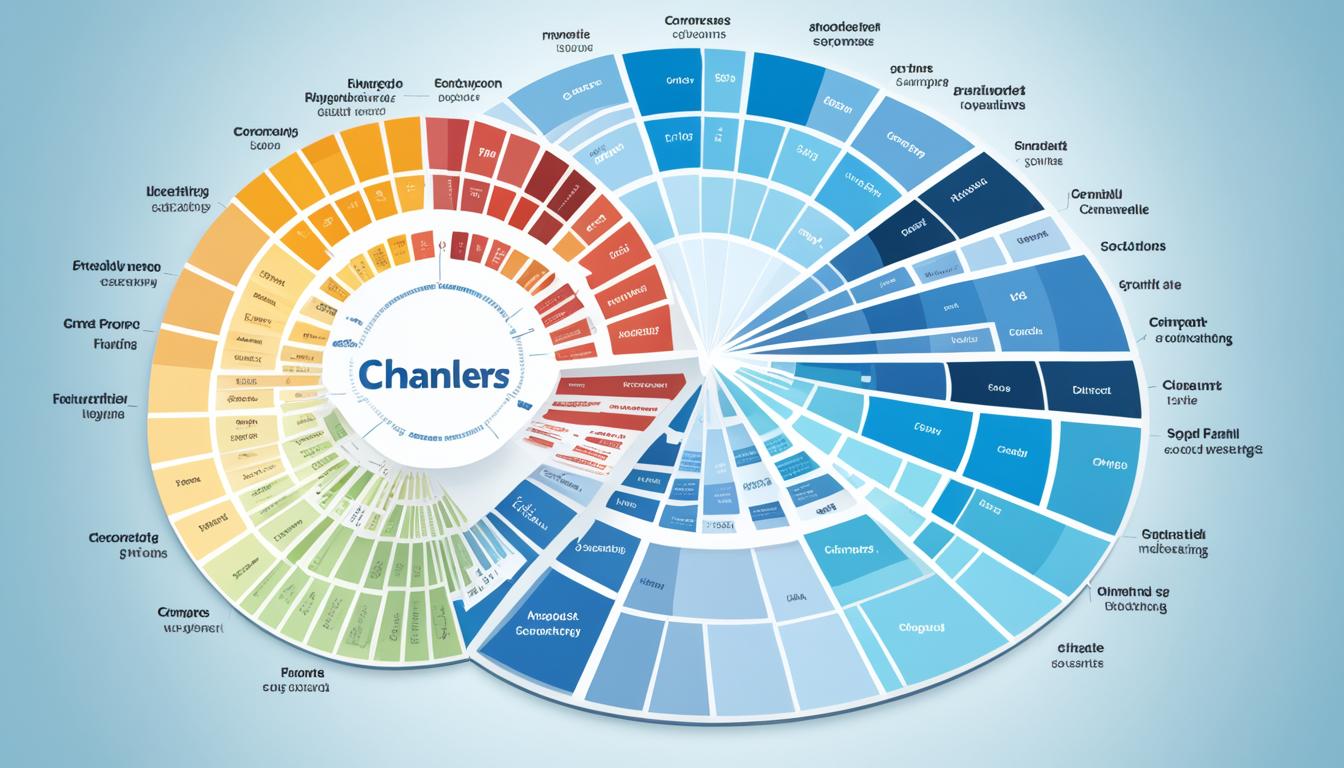In 2020, people in the U.S. spent around 470 minutes each day on digital media. This number grew to 489 minutes by 2022. Experts expect it to top 500 minutes by 2023. Businesses are adapting to this change. They are prepared to spend over $200 billion USD on internet advertising by 2025. Managing a digital marketing budget is crucial for success today.
The world of digital marketing is wide, covering various channels and costs. It includes team salaries, production fees, and adopting CRM. With so much to consider, even a large budget can be spread thin. It’s vital to list all expenses when creating your digital marketing budget. Then, managing your budget well becomes much easier.
Key Takeaways
- The average daily time spent consuming digital media in the U.S. is projected to exceed 500 minutes by 2023.
- Internet advertising spending is forecasted to reach $200 billion USD by 2025.
- Startups and young businesses may need to allocate 12-20% of revenue to marketing, while more established companies typically allocate 6-12%.
- The average business spends 9.5% of revenue on marketing, both online and offline.
- Effectively managing a digital marketing budget requires a thorough understanding of current costs, revenue, and marketing goals.
Know Your Current Costs and Revenue
To manage your digital marketing budget well, first understand your current financial situation. This means looking at your costs to operate, what it takes to get new customers, the impact of your marketing, and the revenue from your efforts. Knowing where you are now helps you plan for the future. It allows you to make smart choices to grow.
Understand Customer Acquisition Costs
One key part of your budget is how much it costs to get new customers. This is your Customer Acquisition Cost (CAC). It covers everything from ads to team member salaries. Keeping a close eye on your CAC helps you find the best marketing paths. This way, you can spend your budget where it works best.
Calculate Marketing Activity Value
It’s also important to figure out the value your marketing brings. This means looking at things like ROI and LTV. These help you see which ads or channels make the biggest impact. Research shows that marketers who track ROI are more likely to get bigger budgets.
Analyze Revenue Sources
Last, look into where your revenue comes from. This shows you which marketing efforts are really paying off. By doing this, you can focus more on what works best. You can also find spots where you might need to change your strategy.
Understanding your current costs, expense for getting new customers, marketing value, and revenue helps a lot. It prepares you to set a budget that matches your business goals. It makes sure your marketing money is used wisely.
Define Your Marketing Goals
Before spending your digital marketing budget, define goals for the year. This involves setting key performance indicators (KPIs), like how many new customers you plan to win over. Make sure these digital marketing goals match your company’s bigger strategic goals.
Stay in touch with different teams and leaders to link your marketing goals with the company’s targets. Aligning your digital marketing goals with the strategic alignment of the organization helps your budget work harder for you.
Set Key Performance Indicators
Setting key performance indicators (KPIs) clearly is key to your digital marketing goals. Choose KPIs that are clear and directly relate to what you want to achieve. These might include the traffic on your website or how many people turn into customers.
By keeping an eye on these numbers, you can see how well your marketing tactics are working. This lets you adjust your strategy based on real data.
Align with Company Strategic Goals
Your digital marketing goals must be in line with the big objectives of your company. This makes sure your marketing efforts help the company grow.
Working closely with other teams and leaders keeps everyone on the same page. It also helps ensure your marketing money is used in the best ways.
Determine Your Total Annual Budget
The first step in making a budget is figuring out how much to spend. On average, companies use 9.5% of their money for marketing. But what’s right for you might change with things like what your business does and how big it is.
Follow Industry Benchmarks
New businesses might need to spend 12-20% of their earnings on marketing. Meanwhile, older companies could do the same job with just 6-12% of what they make. It’s important to look back at what has worked before when deciding where to put your money.
Assess Company Size and Growth Stage
How much to spend on marketing also depends on your company’s size and how fast it’s growing. Smaller and newer companies might need to put more money into it to get the word out and to find customers. Yet, bigger or more stable companies could reach their goals without spending as much in comparison.
Create a Monthly Budget Plan
Planning a monthly budget each year is a must. But it’s also smart to stay agile with your marketing budget month by month. By making a detailed monthly plan, you can tweak things as you go. So, you’re ready to spend more on successful campaigns, even if you didn’t plan to.
It’s important to keep an eye on your digital marketing’s progress for this. For example, if a PPC Campaign is doing great, you might want to put more money into it now. This means you may spend less in other places this month. Being able to adjust your marketing budget like this is crucial. It helps get the most out of your money on digital marketing.
| Income | Amount |
|---|---|
| PPC Campaigns | $3,000 |
| Email Marketing | $1,500 |
| Total estimated monthly income | $4,500 |
| Expenses | Amount |
|---|---|
| Software Subscriptions | $500 |
| Website Hosting | $100 |
| Social Media Ads | $800 |
| Content Creation | $500 |
| Graphic Design Services | $200 |
| Total estimated expenses | $2,100 |
Watching your digital marketing closely and adjusting your budget every month means you use your money better. This flexible monthly budget planning keeps you leading in digital marketing.
Account for Seasonality and Events
To plan a successful digital marketing budget, think about seasonal trends and big events. This means looking at the influence of things like the weather and current industry happenings. Such factors greatly affect how and when you should spend your marketing money.
Holiday Marketing Calendar
The holiday marketing calendar is crucial. It includes national holidays, religious festivities, and more. Businesses need to study these shifts to make their marketing and budget plans better. For instance, October to December sees a lot of marketing action for various products. This is thanks to events like Black Friday and Cyber Monday, key for holiday sales trends.
Industry Events and Conferences
When planning your digital marketing budget, remember industry events. Things like conferences and trade shows offer great chances for your marketing efforts. You can focus on things like generating leads, boosting brand visibility, and networking.
Yet, it’s key to not spend too much in Q4 if you’re not a big retailer or B2C focused. The competition then, especially from other businesses, might increase costs (like CPCs) and lower how many people you can turn into customers.
Continuously Evaluate Performance
Even the best digital marketing plans can sometimes give surprising results. To deal with this, it’s important to always check how our marketing is doing. Look at numbers like Cost Per Acquisition (CPA) and Lifetime Value (LTV). These show us the cost of getting a customer and how much they might spend with us over time. It’s key to review these numbers regularly, as some channels might take time to show their true worth.
For example, some campaigns might look great at first but end up being not so good, and vice versa. By keeping track of our marketing’s success, companies know where to put their money for the best results.
Track Cost Per Acquisition (CPA)
Watching the Cost Per Acquisition (CPA) closely for every marketing channel tells us how well our marketing money is being spent. This metric helps see how much it costs to get each new customer. It lets us find the most efficient use of our budget.
Measure Customer Lifetime Value (LTV)
Besides CPA, Customer Lifetime Value (LTV) is also very important. LTV shows us how much money we can expect from a customer over time. It helps pinpoint the best channels and campaigns for our money.
By looking at both CPA and LTV regularly, businesses can use facts to improve their marketing. This ensures the digital marketing budget is well spent.
Use a Marketing Budget Tracker
Marketing budget tracking is key for any company wanting to grow. It’s crucial to have a system in place, like a marketing budget tracker. This tool helps keep the budget, record spending, and check the difference.
A marketing budget tracker makes spending sense and helps boost your return on investment (ROI). It lets you see your data clearly, sort it into categories, and learn from past spending for future plans.
Tools such as Spendesk get good feedback for being simple to use by different experts. Using them, your team can follow spending live. This means you can make smarter choices and put money where it really pays off.
Even though many marketing teams use automatic systems, some still rely on spreadsheets. This can slow things down and miss chances to help the business. A detailed budget for the whole year, covering all marketing expenses, is vital for keeping every cost in check.
Updating your budget in real-time helps tweak your marketing plans fast. This can steer you away from things that don’t work and toward successes. For new or small businesses, this kind of collaborative budgeting is essential. It keeps everyone on track and makes tracking costs simpler.
Review Company Marketing Goals
The second source highlights the importance of checking your firm’s marketing goals first. This involves knowing the key goals for the next season. Also which marketing goal review projects will get support, and by how much.
They say it’s key to mix short-term projects with those needing steady funds. This way, the funds go where it truly helps in reaching big company goals.
| Marketing Expenditure by Industry | Average Percentage of Revenue |
|---|---|
| B2B Product Companies | 9.4% |
| B2B Service Companies | 10% |
| B2C Product Companies | 14.2% |
| B2C Service Companies | 8.7% |
Statistics show that the right marketing spend changes a lot depending on the industry. Checking these marketing goal review guidelines helps keep the digital marketing budget on track with the main objectives.
Analyze Previous Results
Looking at how marketing activities perform helps companies spend money better. It involves finding what made the most money, figuring out what worked well, and understanding why some things didn’t do as good.
Identify Successful Channels
They suggest looking at key numbers to find the best ways to market. These include how much it costs to get a new customer, the money made from marketing, and how long customers keep using your product. By checking which ways always do well, companies can choose where to put most of their money for the best results.
Assess Underperforming Campaigns
Figuring out what went wrong in unsuccessful campaigns is also crucial. They say to look at the ones that didn’t reach their goals and see what caused that. It might be that they didn’t target the right people, the ads were not good, or they didn’t match what customers like. Knowing why some projects failed helps avoid making the same errors and shows how to make those projects better next time.
| Metric | Successful Channels | Underperforming Campaigns |
|---|---|---|
| CPA | Social media advertising, email marketing | Influencer collaborations, direct mail |
| ROI | Content marketing, search engine optimization | Paid search, display advertising |
| LTV | Referral programs, loyalty initiatives | One-time promotional offers, affiliate partnerships |
Constantly checking how well each channel and ad campaign does lets companies spend smarter. This means putting money where it makes the most from ads that work and fixing those that don’t.

Budget Management
Managing a budget well is key to a digital marketing strategy’s success. According to the third source, it’s crucial to spread your marketing money wisely. This means putting it in the best channels and including all costs, like salaries and making things, in your plans.
Allocate Funds Across Channels
Deciding where to put your marketing money is vital. You need to look at what worked before and what didn’t to spend smartly. Also, remember all the costs, from software to creating your ads. Not thinking about these costs can mess up your budget and lead to overspending.
Factor in Salaries and Production Costs
When planning your marketing budget, don’t forget about team wages and costs to create things. Include how much you pay your team or any outside help. Plus, remember to factor in creating content, graphic designs, or videos costs to make your marketing happen. Thinking about these details helps make your budget realistic.
| Expense Category | Average Percentage of Marketing Budget |
|---|---|
| Salaries and Wages | 32% |
| Production Costs | 28% |
| Advertising and Promotion | 20% |
| Technology and Software | 12% |
| Other Expenses | 8% |
Select Appropriate Marketing Channels
Choosing the best marketing channels for your budget is key. Look at outreach versus inbound strategies. Also, think about who you need to reach. Your goals, industry traits, and the customer’s path influence this choice.
Outreach vs Inbound Marketing
Outreach methods like cold emails, working with influencers, and sending direct mail can get you in front of new people. They’re great for finding leads fast. But, these methods might need more time and money.
Inbound marketing, on the flip side, aims to draw in your audience with helpful content and great experiences. This includes SEO, creating content, and being active on social media. It can cost less per win but might build slower.
Audience Targeting Needs
Knowing what your target group likes and needs is vital. Different strategies work for different people. For example, social media often grabs younger eyes, while email and good content might resonate with older folks.
Looking at who you’re already selling to and learning more about your industry’s audience can show you the way. This data helps you smartly pick where to focus your marketing efforts.
Finalize and Get Approvals
In the last steps of digital marketing budget planning, we focus on finishing the budget. We also need to get the needed approvals. This part is key for the budget to work well.
Support Budget with Research
To get your budget approved, you must back it up with strong research and data. Use info from earlier steps, like customer costs and marketing values. The more details you can give, the stronger your case for the budget.
Highlight Expected Returns
When you show your budget, make it clear what you expect to get back from it. This might be more people knowing your brand, more visiting your website, or more sales. Showing how your budget can make a difference is vital to get it okayed.

Conclusion
To manage a digital marketing budget well, you need to take a few key steps. First, know your costs and what you earn. Then, set clear goals for your marketing.
Determine your budgets for the year and each month. Remember to think about busy times and special events in your industry. Always check how well your marketing is doing. Use tools to track your budget too.
It’s also important to look at your business’s goals and past results. Don’t forget about all the costs, like salaries and what it takes to make your products. By doing all this, your digital marketing investments will do better. You’ll meet your growth goals.
Keeping a good budget planning process is key for growing companies. Use data, set goals, and be careful with your finances. This way, your digital marketing budget will really support your biggest business goals.
Using a broad strategy for budget management helps companies truly succeed in digital marketing. Stay focused on getting better, and be ready to change with the market. This approach helps businesses stand out in a tough market.
FAQ
What are the key steps in managing a digital marketing budget?
First, understand your current costs and revenue. Then, set clear marketing goals. Also, pick the right annual and monthly budgets. Factor in seasonality and industry events. Always check how well your budget is doing. And, use a marketing budget tracker.
How important is it to review company marketing goals when budgeting?
It’s vital to check that your marketing budget meets the company’s big goals. You should know the top priorities ahead and see where the marketing helps the most.
What factors should be considered when determining the total annual digital marketing budget?
Look at industry benchmarks, the size of your company, and where it’s growing. On average, businesses spend 9.5% of their revenue on marketing. But younger companies might need to spend more, 12-20%, to do just as well.
Why is it important to create a monthly budget plan?
Making a monthly budget plan gives you flexibility. You can change things after seeing what works well. This way, you’re ready to respond to great campaigns or sudden needs for more spending.
How can businesses effectively evaluate the performance of their digital marketing efforts?
Keep an eye on key metrics like Cost Per Acquisition (CPA) and Lifetime Value (LTV). Looking at these over time helps you really understand the value of each marketing channel.
What is the importance of using a marketing budget tracker?
A marketing budget tracker helps you see and review your spending’s details. It lets you organize and learn from past budgets. Without it, you’ll find it hard to see if your spending’s on track or how to improve your ROI.
Why is it crucial to factor in all necessary costs when budgeting for digital marketing?
Not including all costs upfront can lead to overspending later. Things like software, salaries, and market research need to be in the budget. Otherwise, you might end up going way over your planned spending.
How should businesses select the appropriate marketing channels for their budget?
Choosing marketing channels depends on what you want to achieve, your industry, and your customer’s path to buying. Decide if you need to reach out or pull in customers. Think about who you’re targeting specifically.
What is the importance of finalizing the digital marketing budget and getting it approved?
It’s key to finish and get your budget approved. Share all the research you did, including why these investments are expected to work. This helps make your budget plan stronger.
Source Links
- https://www.molestreet.com/blog/allocate-digital-marketing-budget
- https://www.spendesk.com/blog/digital-marketing-budget/
- https://meshpayments.com/blog/tips-for-managing-digital-marketing-budget/
- https://business.bankofamerica.com/resources/don-t-fear-the-b-word-how-budgets-can-liberate-your-business.html
- https://www.nerdwallet.com/article/finance/tracking-monthly-expenses
- https://www.bdc.ca/en/articles-tools/marketing-sales-export/marketing/marketing-budget-cut-not-cut
- https://www.businessnewsdaily.com/15766-how-to-develop-a-marketing-budget.html
- https://www.incharge.org/financial-literacy/budgeting-saving/how-to-make-a-budget/
- https://www.nerdwallet.com/article/finance/how-to-budget
- https://dfr.oregon.gov/financial/manage/pages/budget.aspx
- https://consumer.gov/managing-your-money/making-budget
- https://bettermoneyhabits.bankofamerica.com/en/saving-budgeting/creating-a-budget
- https://www.fundingcircle.com/us/resources/seasonal-budgeting-guide/
- https://www.unleashedsoftware.com/blog/know-seasonal-budgeting
- https://www.runviably.com/seasonal-budgeting-for-small-businesses/
- https://www.investopedia.com/terms/p/performance-management.asp
- https://www.clearreview.com/resources/guides/what-is-effective-performance-management/
- https://www.qualtrics.com/experience-management/employee/performance-appraisal/
- https://www.spendesk.com/marketing-budget-software/
- https://www.smartinsights.com/managing-digital-marketing/planning-budgeting/8-easy-annual-marketing-plan-and-budgeting-templates/
- https://planful.com/blog/marketing-budget-allocation-best-practices/
- https://blog.hubspot.com/marketing/how-to-manage-marketing-budget-free-budget-templates
- https://www.stampli.com/blog/payments/how-to-manage-marketing-budgets/
- https://finmark.com/budget-analysis/
- https://planergy.com/blog/budget-variance-analysis/
- https://www.fairmarkit.com/glossary/budget-management
- https://www.spendesk.com/blog/budget-manager/
- https://www.clearpointstrategy.com/blog/project-budget-management
- https://coschedule.com/marketing-strategy/marketing-channels
- https://improvado.io/blog/how-to-choose-best-marketing-channel
- https://blog.wishpond.com/post/115675444117/how-to-choose-the-right-marketing-channels
- https://capincrouse.com/ten-steps-finalizing-annual-budget/
- https://www.routine.co/blog/email-for-budget-approval
- https://cfo.berkeley.edu/budget-process/budget-process-managers
- https://nap.nationalacademies.org/read/13271/chapter/9
- https://www.ncbi.nlm.nih.gov/books/NBK45551/














